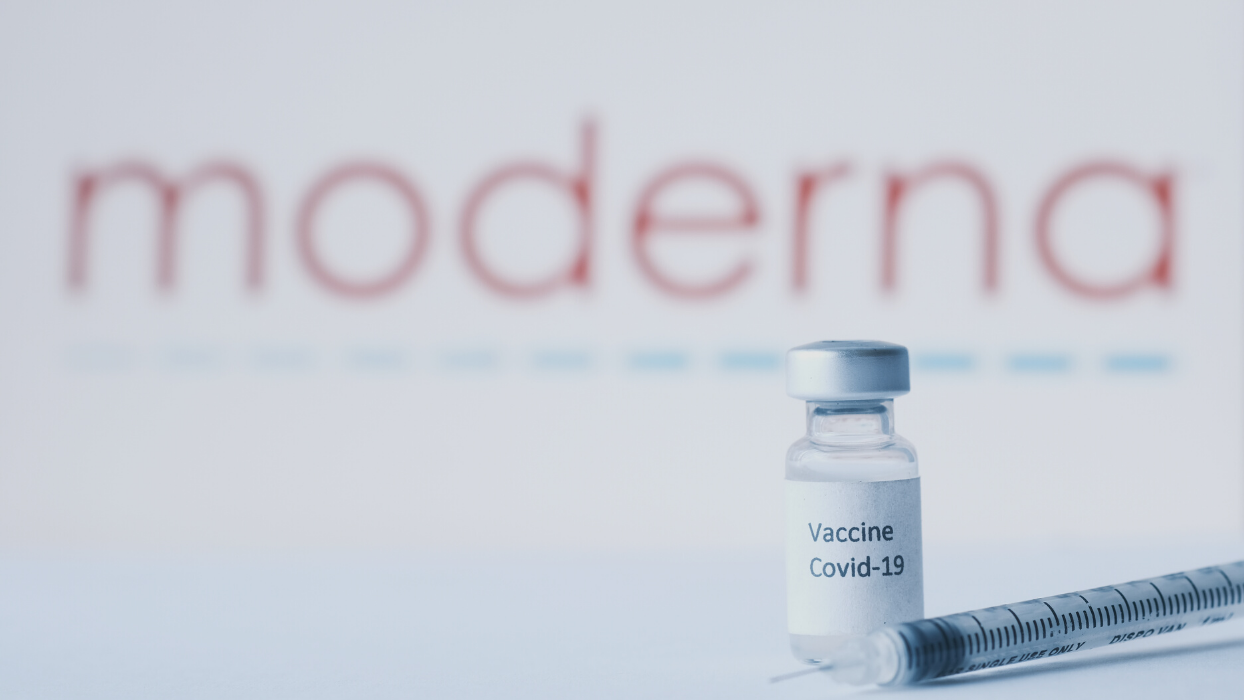Navigating pregnancy during a global pandemic is a challenge none of us thought we would ever have to face. As the medical discourse continues to change on a daily basis, you might find yourself struggling to keep up with the newest information.
As more vaccines are gaining approval and beginning distribution to the public, you might be wondering about COVID-19 vaccines if you’re pregnant or breastfeeding. Are they safe? Are they necessary?
Take a deep breath, mama, we’ve got you covered.
Here, we have compiled all the recent info you need to make the right decision for you and your (growing) family.
The Moderna COVID-19 (mRNA-1273) Vaccine: What You Need to Know

The science behind vaccines is confusing. Basically, there are just two things you need to know about the Moderna vaccine, how it was created, and how it will affect your body:
The mRNA vaccine does not contain any live virus.
The mRNA will not interact with any DNA as they remain outside of the cell’s nucleus.
Why COVID Vaccines Are Likely Safe for Pregnant People

Both of these scientific facts provide a solid basis for the conclusion that they are safe, and data so far has showed that pregnant women react to the vaccine in virtually the same way as someone who is not pregnant. Because the vaccine was developed with mRNA, they do not contain any live virus, meaning there is zero risk that it will “accidentally” infect a pregnant woman with the virus. There are no formal studies on the effects in pregnant women, but there has been zero evidence so far that pregnant women need to worry.
COVID-19 Vaccination Considerations for People Who Are Pregnant
Some women participating in the clinical trials have become pregnant, and their conditions are being closely monitored. So far, there has been to data to suggest that the risk of taking the vaccine is greater than the payoff. The percentage of patients hospitalized due to COVID-19 is far higher in pregnant women, and the risk is high for both mama and baby (including risk of preterm birth), so mamas who are able to get the vaccine absolutely should.
As with any vaccine, there are a list of side effects that are possible, which can include fever. Since fever can lead to pregnancy complications if mama goes into distress, you would likely be advised to take some acetaminophen. A simple dosage or two should bring your temperature back down.
Similarly, it is possible for a vaccine to cause an allergic reaction. If you have had a severe reaction to a vaccine before, you should talk to a doctor about whether or not this vaccine is right for you. Sometimes allergies are unknown, so you may want to weigh the risks of having an allergic reaction you didn’t know about, but most doctors maintain that if you have responded reasonably to vaccines in the past, it is probably a pretty safe bet that this one will be tolerated fine as well.
WHO Recommendations
Initially, the WHO recommended most pregnant women to not use Moderna or Pfizer vaccines, simply because there were no formal studies done that were specific to the effects on mom and baby. However, this statement has since been changed, alongside the recommendations of several American organizations who specialize in fertility and obstetrics, encouraging pregnant women to get the vaccine as soon as they are able to. mRNA vaccines are not known to be a risk to breastfeeding babies, so breastfeeding mamas are included in this recommendation as well. Even women trying to conceive are being strongly urged to get the vaccine.
That being said, the CDC has recommended that pregnant women wait until they are out of the first trimester—when miscarriage risks are the highest.
The Takeaway
Ultimately, whether you are pregnant or postpartum, the choice to get the COVID-19 vaccine, or not, is highly personal. Do some research, listen to the advice of major health organizations and professionals, consult with your doctor, and do what feels right for you.
One day, you will be able to tell the story of how you gave birth during a pandemic, and that’s a pretty heroic story to tell.


